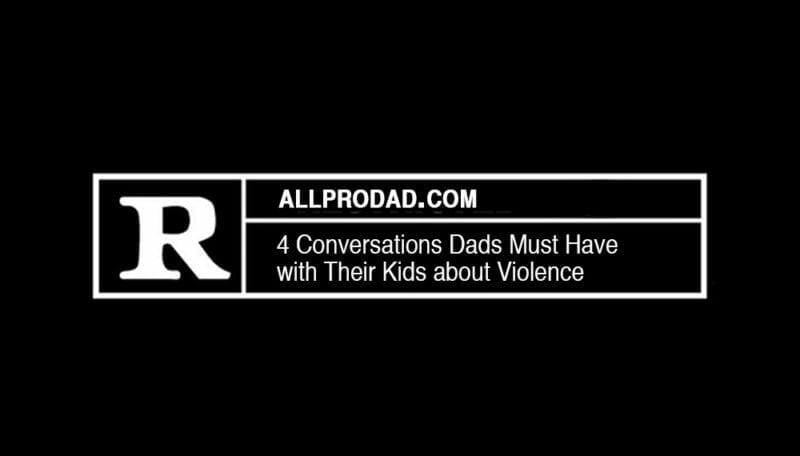If we watch the news on a regular basis, it’s impossible to miss the strong attraction America has to stories featuring mayhem. The cliche: “If it bleeds, it leads” may be a huge generalization. But, too often, it seems to be the playbook by which news events are filtered. The fact is assault, murder, terrorism, and war always grab the headlines. Video games have become more graphic and more personal; movies and television depict gruesome images designed to grab our attention. Even the Internet thinks nothing of making stonings, beheadings, and the aftermath of terrorist attacks instantly accessible. Even sports broadcasts tend to glorify the gore, “I think he snapped his elbow on that play, Sam; let’s play it again (10 times) in slow motion so we can see the actual point where the bones separate…” Really?
Understanding this, how do we help our children understand how wrong violence is, while at the same time respecting our military, staying committed to protecting the innocent, and valuing the importance of self-defense? Check out the following 4 critical conversations dads must have with their kids about violence.
1. Talk about right and wrong from a firm vantage point.
Every value system must have clear reference points from which to draw conclusions. Teach your children personal faith; make sure they understand key provisions in the Constitution. Be the kind of consistent role model where they can anchor their beliefs and understand right and wrong in the context of a stable family.
2. Violence is NOT entertaining.
Talk with your children about entertainment. Take a strong stand against the idea that there is any entertainment value in anyone else’s pain. Make sure they understand the difference between fights that move the plot along and violence that is simply gratuitous.
3. Discuss advocating on behalf of victims.
Part of being a man is defending the oppressed, the minority, and the underdog. If violence is not entertainment and, if being “manly” means standing up for the oppressed, we must talk with our children about defending those who are bullied and standing against persecutions such as sexism, racism, and homophobia.
4. Have a conversation about world politics and why war is sometimes the only appropriate response.
Build on the idea that strong people stand up for victims. Mention Hitler and WWII and explain why America had to intervene. Don’t be afraid to field hard questions from the kids. Make sure they understand that good government always has to ask itself hard questions. Try to refrain from being politically partisan.
Sound off: Is this a hard topic for you to wrap your head around? What is helpful in your family?











Huddle up with your kids tonight and ask, “What is the difference between right and wrong?”